How demagogues destroy democracy: a step-by-step global guide
By John Keane | September 5, 2024
How demagogues destroy democracy: a step-by-step global guide
By John Keane | September 5, 2024
It’s a sign of our troubled times that when asked about the health of their democracies, millions of citizens curse politicians, complain about poor government performance, and express fears that their democracies are fast sliding towards a cliff’s edge (Alliance of Democracies 2024). Across the globe, they say that they’re especially worried about matters such as inequality, social polarization, political disorder, and the rise of extremist leaders. They make special mention of events such as the January 6 meltdown moment in the United States, when armed and angry protesters, hellbent on overturning an election result, stormed a legislature, cheered on by a demagogue president and his buddies.
They also mention crunch points of the kind that gripped Brazil two years later, when supporters of Jair Bolsonaro—refusing to concede his election defeat and calling for military intervention— stormed a presidential palace, destroyed art works, hurled broken furniture through shattered windows, ransacked Supreme Court rooms, and, just for the hell of it, switched on sprinkler systems to flood parts of Brazil’s Congress building.
These citizen anxieties about mob-rule moments are well-founded. They remind us of the great fragility of democracy—above all, that while building a democracy is a tough task that can take at least a lifetime, its destruction, or “democide,” is much easier and can happen faster (Keane 2009). Indeed, it has happened many times in the history of democracy. Democide always outpaces demogenesis, but the destruction of democracy’s spirit and substance typically never happens in a trice. This is the troubling truth of the demagogue-inspired insurrections we’ve seen in the United States, Brazil, and other countries in recent years: They’re not “sudden death” moments but single acts in a much lengthier traveling circus of political vanities, blustering fun, social decay, and lust for revenge—set against a backdrop of hunger for power, wealth, and fame.
Democide at the hands of demagogues has a long ancestry stretching back to ancient Greece, where strongmen playing the role of “mis-leaders of the people” (Finley 1962) were commonplace. This occurred despite efforts to prevent their rise using measures such as voting them into exile (ostrakismos), public reviews of their fitness for office (dokimasia), and legal moves (graphe paranomon) against demagogues who carelessly advocated policies that contravened existing laws.
From the time of the French Revolution, demagoguery also plagued the age of electoral democracy (think all the way back to men-on-horseback figures such as Juan Manuel de Rosas in Argentina in the late 1820s, through to the fiery, folksy “Kingfish” Huey Long in the United States of the 1930s). Latter-day demagogues—most of them aggressively macho men (think of Trump’s misogynist antics and Boris Johnson’s “boys will be boys” WhatsApp messages and tropes about the “fickleness” of women)—are again everywhere on the rise (Roose 2020).
Democracy’s auto-immune disease
How and why is this happening, across vast geographic distance—and why now? What things do demagogue wannabes have in common?
First, it’s important at the outset to understand that demagogues are neither God-given nor proof that hero-worship is a “natural” feature of the human condition, as the Scottish thinker and writer Thomas Carlyle famously argued two centuries ago (Carlyle 1841).
Demagogues are in fact an auto-immune disease of democracy, as German sociologist Max Scheler first pointed out over a century ago (Scheler 1912; Keane 2009; 2022). Put simply, demagoguery isn’t just symptomatic of the failure of democratic institutions to respond effectively to anti-democratic challenges such as rising social inequality, dashed expectations, and the dark money poisoning of elections. Demagogues inflame and self-destructively damage the cells, tissues, and organs of democratic institutions. Demagoguery resembles a cancer within the body politic known as democracy.
Or, to mix metaphors somewhat, demagoguery is like rheumatoid arthritis in that it takes advantage of the body’s immune mechanisms—freedom of public assembly, open communications, free elections, and multi-party competition—to overload those mechanisms with swarm attacks that paralyze these immune mechanisms and disease the whole body politic.
To a medical practitioner, of course, the comparisons to bioscience may be just rhetorical. But the key point is clear: Because democracies pride themselves on guarantees of “one person, one vote” and promises of dignity and well-being for all, they ask for trouble when they allow political inequalities, social injustices, and citizen grievances to take root and multiply. These failures of democracy breed feelings among citizens that are known as ressentiment (defined by 19th-century German philosopher Friedrich Nietzsche as a feeling of envious hostility toward the perceived source of one’s frustrations). They grow jealous and angry, nostalgic for an imagined great past—often including the lost possessions of empire—and hopeful for what they see as a return to greatness in the future. This disappointment and bitterness, mixed with envy and hope, are serious pathologies of democracy. They are the night soil—the untreated politico-fecal excreta—in which demagogues are hatched.
Demagogues on the trail have a nose for ressentiment. Sniffing widespread public disaffection, they take charge of a political party or coalition that claims to have a hotline to the disgruntled. Cashed up, brimming with narcissistic self-belief, and making good use of public rights of assembly and media freedoms, they set their sights on winning a forthcoming election. They issue reassuring-sounding claims of moderation. Building verbal bridgeheads to opponents, subtly pushing the boundaries of the sayable, “interlocking with the enemy” and making oneself look “harmless” (Kubitschek, 2017) are priorities. There are promises of responsible government, and moments when butter wouldn’t melt in their mouth. But as the hard campaigning gets underway, there’s lots of rough talk in the name of “the people.”
Some demagogues even claim that they are the physical, material embodiment of “the will of the people”—perhaps most glaringly displayed in 2014, when India’s Narendra Modi said his victory was blessed by the Hindu god Lord Krishna. Gross simplifications, fearmongering, falsehoods, easy laughs, and insults by vulgar epithet are repeated in speech after speech of the typical demagogue (Roberts-Miller 2005; 2017). Nobody knows whether the demagogue believes the things he or she says. There are, meanwhile, promises to drain the political “swamp” and vows to destroy the corrupt established political caste (or la casta, as it is phrased in a pet saying of Argentina’s aggressive, flamboyant, right-wing populist president Javier Milei).
Demagogues call upon “the people” to put an end to their miseries. Demagogues urge them to vote, and to vote the right way, and even to do extraordinary things like “bring down the regime”—the keywords of the 2011 Tunisian revolution cleverly recycled by demagogue power grabber Kais Saied during his 2019 election campaign speeches (Sadiki and Saleh 2023).
Next step: With rival politicians generally unpopular and opposition parties struggling to keep up, the Leader, by now practiced in the dark arts of popular seduction, attracts a substantial following. The demagogue acts like a god on earth, a metahuman capable of raining down well-being and ill-being, arbitrarily, with impunity.
The demagogue’s rhetoric of “the people” is designed to mobilize sections of the populace to confirm who they are: The People. Demagoguery is demolatry (the worship of people rather than gods). Demagoguery is ventriloquism. Millions of disgruntled voters find the demagogue’s promises attractive. Excitement mounts as election day nears. With the help of heaps of money, determination aplenty, a decent turnout, and a measure of good luck, it’s official: The demagogue snatches victory.
There’s loud praise and loathing on social media, endless talk show talk, wild rumors, and gossip galore, and joy in the streets. The Great Redeemer demagogue is delighted. Victory in the name of the People is sweet. The demagogue says it’s a great triumph of democracy. After all, what could be more democratic than an election victory over business and government oligarchs, middle-of-the-road cartel parties, and corrupt politicians who cheat and dissemble in favour of the powerful and wealthy? Isn’t democracy a way of life founded on the authority of “the People”? Surely the mobilization of hope, the insistence that things can be different, and that all citizens should expect better confirm the levelling spirit of democracy?
Dirty tricks
Now comes the moment when the transition away from power-sharing democracy gets underway. Winning office tempts the demagogue and advisors to move quickly, to outflank and politically crush their opponents. Every political trick in the book is played. Nothing’s business as usual. The bellowing and bragging continue. There are threats and bribes in backroom meetings, dinner deals with business oligarchs, court victories, state-of-the-art dog whistling, troll factories and message bombing, calculated silence, and threats of brute force.
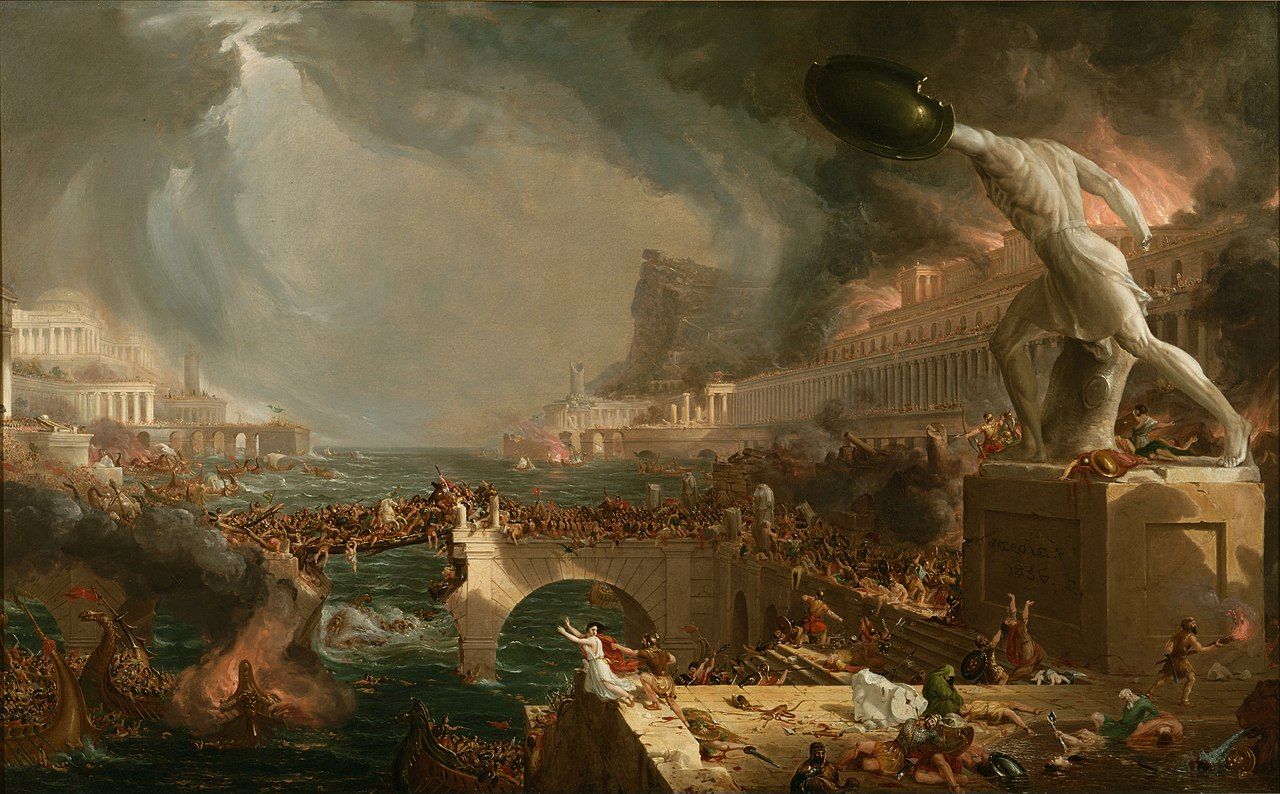
The demagogue cuddles up to media magnates: multi-billionaires like the US-based Rupert Murdoch, India’s Gautam Adani, and the Philippine’s wealthy magnate Manuel Villar. Independent media platforms and journalists (Modi calls them “presstitutes”) are special targets. Teleprompted speeches and rigged press conferences become commonplace spectacles, as Mexico’s president Andrés Manuel López Obrador showed in his daily early morning live television press conferences (mañanera), in which he harangued opponents he called “fifis,” “neoliberals,” and “puppets,” peddled “otros datos” (“other facts”), and expounded far-fetched praise of Mexico as “a beautiful and safe country.” Efforts are made to neuter, politicize, and effectively kidnap public service bureaucracies, independent regulatory bodies, local governments, and other power-monitoring watchdog institutions. Independent courts and uppity parliaments are also prized targets. (In Turkey, President Erdogan regularly denounces judges as members of the “juristocracy” while El Salvador’s Nayib Bukele calls them “genocidal.” [Esperanza Casullo and Brown Araúz, 2023]). “Winner takes everything” is the name of the game.
The government led by the big-mouthed Grand Redeemer craves concentrated political power. It cares little for the complexity of the world (Müller 2016) or the niceties of public accountability. Unchecked ambition is the thing. The Great Redeemer prefers decrees. The point is to suck life from power-sharing democracy and the give-and-take compromises that are committed to the principle of fair treatment. Gripped by an inner urge to destroy checks, balances, and mechanisms for publicly scrutinizing and restraining power, the demagogue begins to show his or her true colors.
It’s a myth that election to office slakes their thirst for power. In Alberto Fujimori’s Peru, democracia plena (as he called it) meant hostility to what he considered the excessive, idle talk of the political class and its established media. Declaring an end to oligarchy, government secrecy and silence, the demagogue openly contradicted himself by bribing and browbeating legislators, judges, bureaucrats, and corporate executives (Conaghan 2005).
Boris Johnson dreamed of transforming the Westminster parliament into a poodle of executive power, in the name of a fictional so-called “British people.” Kenya’s Uhuru Kenyatta railed against courts run by what he termed “thugs” paid by “foreigners and other fools” who rule “against the sovereign and supreme voice of the People.” Mexico’s López Obrador ordered the rewriting of school textbooks, disbanded the federal police, harassed the National Electoral Institute and the Supreme Court, and strengthened the hand of the army. In Hungary, the government of Viktor Orbán has collared mainstream media, the judiciary, and the police and continues to breathe fire down the necks of the universities and civil society organizations.
Donald Trump was no different. His stormy four-year presidency was locked in a permanent war with the federal bureaucracy, so-called “fake news” media, the judiciary and intelligence services, and even the Boy Scouts of America. He hankered after trust in family ties and demanded loyalty from his followers, egged on by talk of the need to “bring everything crashing down” in the words of Trump enabler Steve Bannon. He accomplished this through deep budget cuts, the centralization of federal decision-making, and refusals to fill empty leadership positions. Trump fancied himself as a lollapalooza leader, a guide, a god, a redeemer who never, ever loses battles. He stood, and will stand yet again, for government by nepotism: not procedural rules that ensure fair play, but personal channels—self-styled machismo against foes at home and abroad.
Warnings
Innocent bystanders at first find the dynamics of demagoguery puzzling because the ruination of democracy is done in the name of democracy. But there comes a point when sirens are sounded: As high-level games of thrones are played out and power-grabbing gathers pace, opponents of the demagogue grow alarmed. They realize that despite all the populist bluster, the demagogue is in reality a saboteur of democracy—that the government of “the people” is driven by an inner urge to ditch and destroy the institutions and tools that monitor those in power. These “monitory democracy” checks and balances are vital for keeping an eye on power and publicly restraining its abuse by governments and corporations alike (Keane 2009; 2022). They ask a vital question: What is lost when a democracy loses its way, its spirit and substance drained of life? Few journalists and pundits show much interest in responding; those who warn that democracy is dying get limited media coverage or are forcibly silenced.
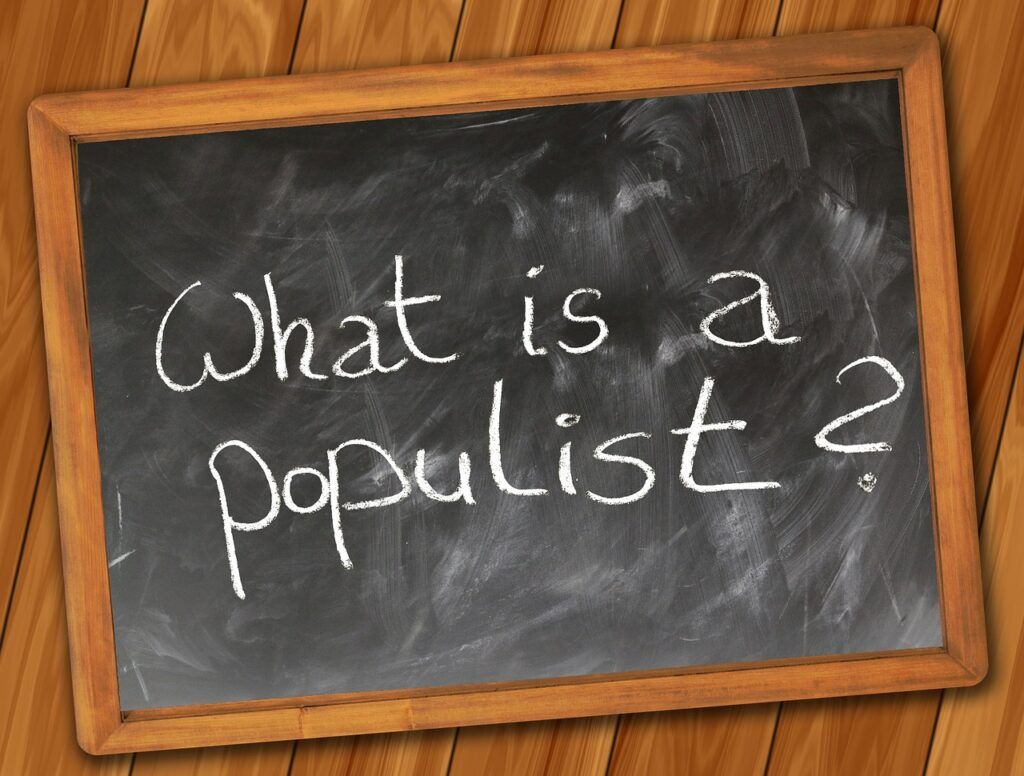
As protests fester, it isn’t long before the demagogue and the government of “the People” begin cracking down hard on opponents. Politics becomes charged with fighting phrases and the dark energy of violence. Trump’s urging of audiences to get tough with hecklers—“punch ’em in the face,” “carry ’em out on a stretcher”—and his advice to police officers “not to be too nice” when handling suspects was no exception, no idiosyncrasy. Backed by police kitted out in army gear, helped by kettling, rubber bullets, water cannon, and whiffs of tear gas, restrictions on public assembly and media censorship are enforced. There are arrests, court convictions, and jailings.
But it’s important to understand that rule by demagogues is not based solely on repression. Demagogues have a penchant for seduction. They treat the whole world as a stage on which they play the role of heroic central characters in blustering performances designed to win over the hearts and heads of their audiences.
There’s flattery, loud laughter, foul language, bawdy jokes, and outrageous things said as the big boss Leader carries on whipping up talk of “democracy” and “the People.” The demagogue peddles passion and prejudice, bigotry and ignorance. Demagogues brag that they are turning everything around and carry on building a pork-barrel spoils system to reward friends and punish enemies.
By this stage of the circus extravaganza, politics is no longer a give-and-take bargaining conducted in a spirit of fair-minded compromise. It degenerates into spectacles, scapegoating, dirty tricks, and permanent campaigning by a government led by a demagogue messiah. Ruling by lies and cheating (Sajó 2021) spreads, but the Grand Redeemer promises “the People” improvements in their daily lives (Krauze 2013). There is much talk of solutions to the headaches and heartbreaks of unemployment, inflation, unaffordable housing, and poor healthcare—but much of that is only talk.
Quid pro quo politics
Since winning and retaining the hearts of loyal followers is a priority, quid pro quo politics thrives, in which everything is done in exchange for something and favors are handed out to favorites. Rich friends are richly rewarded.
Ancient Greek democrats used a (now obsolete) verb, dēmokrateo, to describe how demagogues ruling in the name of the people typically teamed up with rich and powerful aristocrats to snuff out democracy.
That’s exactly what happens in our age of demagogues.
In Hungary, the Orbán government has cultivated a nouveau riche stratum of poligarchs who enjoy tax exemptions, business opportunities, and luxury living (Magyar 2016). Trump’s 2016 campaign talk of “draining swamps” in the end filled them with millionaires and billionaires.
There are, meanwhile, generous offerings of material gifts to “the People.” In the month prior to the 2022 Hungarian elections, Viktor Orbán’s government reportedly spent around 3 percent of the country’s GDP on payments to targeted voters, including big bonuses to 70,000 members of the army and police, tax refunds to nearly 2 million employees, and an extra month’s benefits to 2.5 million pensioners.
Meanwhile, in India, Modi has turned voting citizens into government beneficiaries (labharthis). In a country where 80 percent of the population is either rural or poor, his governments have actually spent less on education, health care, job creation schemes, and other long-term social investments—but won re-election in June, 2024, with the help of prime minister-branded deliveries of sacks of free rice and wheat, the setting-up of millions of personal bank accounts, “direct benefit transfers” of money, and promises of toilets and piped drinking water in every home.
Remaking the people
What comes next? The demagogue’s ruling party, helped by cunning media tactics and non-stop talk of a corrupt and untrustworthy opposition, prepares for the next election. The point is reached where ballots are used to ruin democracy just as effectively as bullets. Elections become more than elections. “Elective despotism” (as Thomas Jefferson termed it) is on the agenda. Elections resemble rowdy plebiscites, public rituals, carnivals of political seduction, or celebrations of the mighty power of the state, endorsed by the votes of millions of loyal followers.
As the transition away from democracy in the name of democracy gathers pace, something more startling happens. In the hands of the ruling party and its despot leader, the razzamatazz about “the People” has a more sinister effect: It aims to redefine who “the People” are. Desperate to tighten their grip on state power, with eyes on another election in the not-too-distant future, the demagogue and the governing party hands bread and roses to loyal followers and undecided waverers. But it also hits hard against its targeted so-called “enemies.” The government spreads uncivil language, picks political fights with its opponents, tightens border controls and builds barbed-wire fences against foreigners and so-called “foreign influences.” It cheats and lies with impunity; the blarney and blather aim to persuade millions of followers that they’re living the lie together, and that lies are an instrument of resistance to their misfortunes (Sadurski 2022). Talk of conspiracies, scapegoating, boastful exaggerations, clownery, and bullshit continue to be spread by media organs loyal to the demagogue.
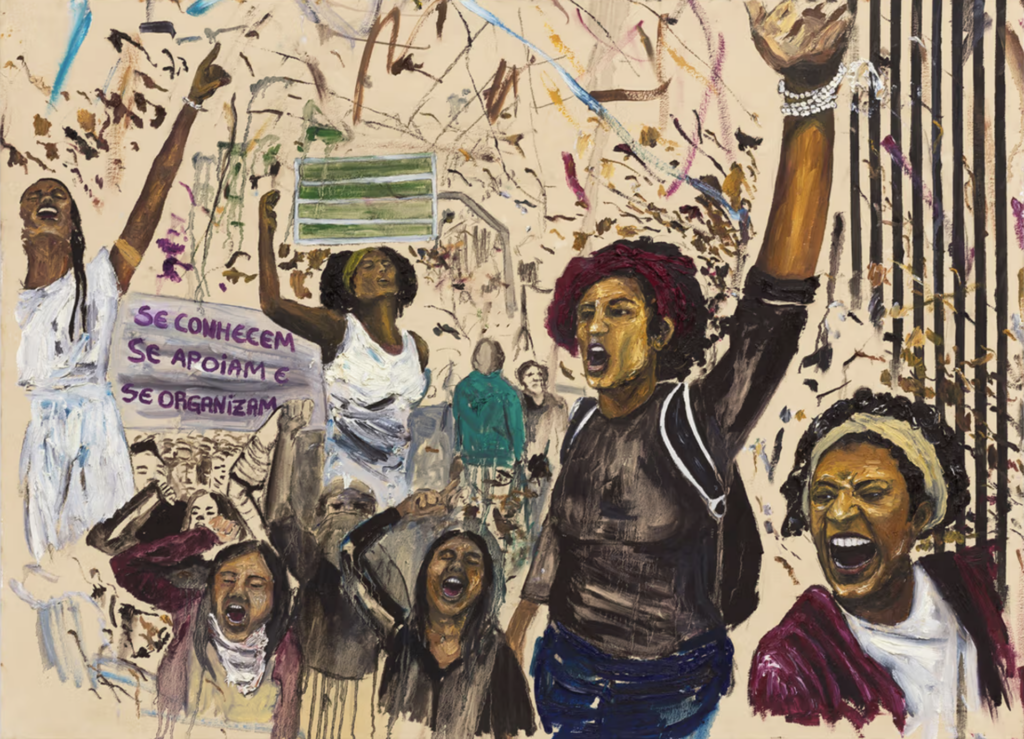
The signature campaign tactic is stirring up trouble about who counts as “the People.” A new kind of demogenesis takes hold. Peddling fears of enemies within, the government moves to ostracise people deemed not to belong to the “real people” (Donald J. Trump). Past demagogues railed against monarchs, aristocrats, railroad magnates, bankers, and Chinese immigrants. Today’s demagogues target Muslims and their so-called “terrorism” and disloyalty to an imaginary “Hindu nation” (Modi). Elsewhere they spit at liberals, ethnic minorities, and environmental activists. “Poles of a worse sort” (Kaczyński), “Moroccans” (the Netherland’s Geert Wilders), people who are not “real Hungarians” (Orbán) and “proponents of anti-Semitism” (Benjamin Netanyahu) are warned. So are dark-skinned people arriving on boats, same-sex parents, dissident intellectuals, and other opponents of Italianità (Giorgia Meloni). The Great Redeemer repeats, and repeats again, that the government enjoys the backing of an authentically “sovereign People.” That’s why winning the next election means creating a new “people”—a homogenized people who (it’s said) are the true foundation of a true democracy ruled by a true leader whose strength comes from the true “People.” It is as if elections are turned upside down. It’s an Alice in Wonderland dynamic: The government votes in the people.
Despotism
The endgame: Past experience confirms that demagoguery is neither necessary nor inevitable. Demagogues can indeed be stopped in their tracks: dumped by party rivals, forced into exile by a coup d’état, jailed or assassinated. Demagogues can also be outflanked by long-lasting democratic reforms, as happened in the United States during the Progressive era, which countered “The Chinese Must Go!” and other outbursts of populist bigotry and citizen grumbling with inclusive reforms such as a directly elected Senate (1913), the full enfranchisement of women (1920), municipal socialism, new laws covering income tax and corporate regulation, and the eight-hour working day for all wage earners in the country (Hofstadter 1955).
In our troubled times, what is arguably needed to counter demagoguery is not only more citizen involvement in public life—what has been termed “deliberative democracy”—but more robust ways of blocking predatory power, building sharp-toothed watchdog networks and institutions capable of rolling back unaccountable corporate and state power, protecting life on our planet, and generally fostering the spirit of greater social equality among citizens who value free and fair elections, welcome media diversity, and feel utterly comfortable in the company of different others who are not treated as “enemies” but as partners, strangers, competitors, citizens, and friends.
But if few or none of these reforms happen, demagoguery is bound to triumph. Democide in the name of democracy becomes the new reality. The butterfly of open, power-sharing democracy becomes the caterpillar of a weird new kind of government-controlled political system in which most people feel they have little or no influence over the big decisions shaping their lives. A corrupted form of counterfeit democracy triumphs. Business fortunes are made. The rich become super-rich. Elections are regularly held and talk of “the People” is constant. But democracy now resembles a fancy mask worn by wealthy political predators. Contemporary cases otherwise as different as Modi’s India, Vučić’s Serbia, and Maduro’s Venezuela show just how quickly this can happen—it takes no more than a decade—and why the resulting dummy democracy isn’t old-fashioned tyranny or military dictatorship or describable as a single-ruler horror show the ancients called autocracy. It mustn’t be confused with 20th-century forms of fear-ridden fascism and Soviet totalitarianism. It’s more than the triumph of heavy-handed “authoritarianism” (Keane 2020).
The endgame is a strangely new kind of despotism: a corrupted state ruled by a demagogue, backed by government and corporate oligarchs with the help of pliant journalists and docile judges, a top-down form of government secured by the combined force of the fist and the voluntary servitude of millions of sometimes grumbling but ultimately loyal subjectsprepared to lend their votes to a Leader who promises them future material benefits in exchange for their obedience as a fictional “people.” A phantom democracy.
Together, we make the world safer.
The Bulletin elevates expert voices above the noise. But as an independent nonprofit organization, our operations depend on the support of readers like you. Help us continue to deliver quality journalism that holds leaders accountable. Your support of our work at any level is important. In return, we promise our coverage will be understandable, influential, vigilant, solution-oriented, and fair-minded. Together we can make a difference.
Keywords: 2024 election, Elections, demagoguery, democracy, despotism, polarization, ressentiment
Topics: Special Topics




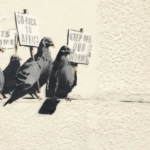

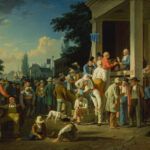














Sorry, but it’s almost useless writing, full of ‘common sense’ but little else. It forgets to mention all the forces working to influence a country Politics; for instance how the Evangelicals shaped the election results in USA (30 million votes for Trump), Brazil (same number for Bolsonaro) and Australia (Murray). For instance how democratic elected rulers where overthrown by external forces (usually US backed) like in Guatemala, Chile, Iran and many others. So when you speak of Mexico or Venezuela or all the others you should take into account what’s happening inside because of external forces like the US that… Read more »
I fully agree with Paolo. Additionally, you are very extending to mention Trump but not the demagogue’s opposing him to build a socialistic regime. Please consider the dynamic internal and external forces when trying to appear as a scientific reporter. You are more than capable, yet I sense a certain level of fear when not mentioning specific names of those extreme agenda-setters. Obviously, you are unaware of why Trump rallied to build his opposition against socialism. Unfortunately, this does take money to hinder the New World Order of which Mexico is now moving forward by eliminating the judicial system. It… Read more »
With all due respect, Dr. Warren, is “socialism” in some way responsible for the challenges facing Western civilizations? Capitalistic transnational Corporations have long sold out their homelands in Western democracies in the name of profiteering off of cheaper labor and lower environmental and regulatory standards in less democratic nations. Does it get any more “free market” in the aggregate than that? How much more “hands-off” do the people of moderately more democratic nations need to be toward transnational corporations? Is it necessary to impoverish ourselves further or destroy what’s left of the ecosystem to entice transnationals to set up shop… Read more »
Our democracy (United States) is in a volatile situation because we’ve been running around the world creating terror in the name of “fighting terror.” How can we credibly object to Putin’s disgraceful invasion of Ukraine when we’ve done the same ourselves? We have been a disgrace to the cause of peace and sovereignty of other nations. We say, “aggressors shall not be rewarded,” and run all over the globe looking for monsters to destroy. We’re no better than anyone else. We ought to get off our high horse of “American exceptionalism” and embrace humility and reality. Stop trying to “fix”… Read more »